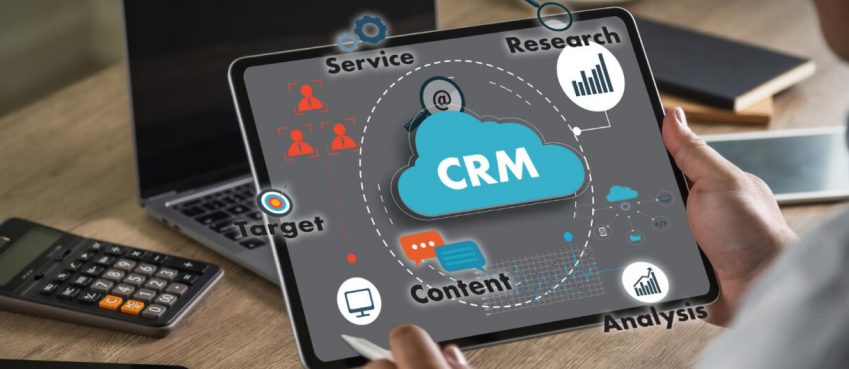
In 1960, the healthcare industry was worth $24.7Bn. Today, owing to an increase in administrative costs and the overall care cost, the industry is worth $3.504Tn.
If administrative costs are halved, the healthcare industry can save up to $175Bn in healthcare costs. (Medalerthelp)
A digital transformation aimed at disrupting the entire healthcare industry is requisite to improve the overall offering and ensure lowered cost.
While healthcare has initiated the implementation of complex technologies into the R&D, drug discovery, clinical trials and other aspects of the industry, there are still areas that need to implement these technologies.
Here, we will talk about all the ways in which AI and Blockchain are already redefining the industry and the possibilities and opportunities that these technologies will gain with time.
(adsbygoogle = window.adsbygoogle || []).push({});
Artificial Intelligence and Blockchain Transform the Health Industry
1. Smart Contracts
One of the best entrants in technology has been Blockchain induced smart contracts. It makes the legal contracts immutable and even ensures complete security and transparency of the parties entering into such contracts.
For instance, in the case of clinical trials or in case some data given by the patient is going to be used by the doctor for research purposes, a smart contract will leverage value to both parties.
In such a case, you will see that the contract will hold true, and will make sure that the parties involved are true to the signed words. Right from data custody to the way in which the trials are held will be channelized by these contracts.
The smart contracts will also ensure that the patient offering the data will remain anonymous and the results can be used for drug discovery and other potential R&D.
This will improve the methods of research, and help healthcare move towards the path of innovation. It will help the doctors offer better care with the help of insights received from actual patients. It will also evolve the mutual patient-doctor trust, which is the essence of quality care.
2. Immutability of Drug Data
Blockchain is a distributed and decentralized ledger, it offers a unique perspective into the data related to the drugs. It lets you know how old the particular drug is, gives you the origin of the drug, the manufacturing details as well as the expiry details. It is impossible to change the data or manipulate the data in any way as a result of Blockchain.
This instance of Blockchain helps record the actual dates and ensures the drugs are not sold to the patient after the expiry date. It also improves the quality and reputation of the manufacturer.
This immutability of the drug data also extends to other patient data. You will find that the patients record certain details with the caregiver, which is stored in the electronic records.
However, there is a possibility of manipulating the data. This possibility can endanger the patients and even the doctor’s career. That’s why you need to implement Blockchain to protect and safeguard all the data in the industry.
Also read: What Is AI Agent? Components, Types, & Methods
3. Secure Data Transfer
The ways in which data is being collected and transferred is largely changing as a result of the newer technologies and methods being adopted by the patients and the doctors.
For instance, patients use messaging apps to send their details including the x-rays. They may use the in-app cameras to record the details and send it to the doctors.
While the connecting technology is new, the hospitals possess legacy systems where the data needs to go in a structured format and will be analyzed for the future.
However, you will notice that the lack of interoperability as a result of the differing systems. In case the mechanisms are interoperable, you are not sure about the safety and security of data transfers, which makes it difficult for you to transfer the data, and read it properly.
Blockchain can help ensure that the data sent to the systems and the results received are protected. It will ensure that the transfer is smooth and absolutely free of any issues. Blockchain will facilitate data security and make sure the data can be viewed with ease.
4. Personalized Treatment Plans
When it comes to patient care, no two people face a similar kind of problem, and each person deals with it differently. As a result, you ought to ensure that your results for patient care and the way you want to treat it should be personalized.
You need to check into details such as demographics, family background, allergies, personal issues and other details along with the health issues before telling them an appropriate treatment for the same.
AI can help you with this. Studying and analyzing the different factors determining the treatment can be difficult, which is why you need Artificial Intelligence.
Based on the past learnings derived from studying these factors, and analyzing the newer patterns the machine will build an algorithm. It will help initiate the bespoke treatment plan which will be in accordance with the need of the patient and will help them overcome the issues.
The system will keep updating the conditions defined within the algorithm, which will enable it to offer better treatment solutions with time. it will even keep itself abreast with the latest healthcare treatment trends and options to ensure that the treatment is never outdated for the patient.
Also read: Chromecast vs Firestick: Which Is The Better Streaming Device? (A Complete Guide)
5. Reduce Diagnostic Errors
One of the major issues facing the healthcare industry happens to be the diagnosis of the issue. In many cases, owing to missing out on one or more issues, the caregivers are unable to diagnose the issue correctly. As a result, caregiving becomes difficult and in some cases the caregiver opts for a completely different treatment plan than what is supposed to be given.
Such diagnostic errors occur owing to the manual intervention and inaccuracies. However, if you fed the machines with the right data, it will ensure that the correct analysis is given.
For instance, if you fed the machine with all the possibilities leading to cancer, they will diagnose everything and give the correct verdict. the algorithms will seldom fail to look into certain aspects, which can happen with human intervention. As a result, AI can help with correct and fast diagnosis, leading to a better cure.
6. Automating the Processes
Some of the major issues in the hospitals and clinics occur owing to the same mundane processes being done manually. The core staff is spent performing the same processes, which results in delays in the actual work. That’s why it is important to automate important portions of the processes.
You need to check into the admin work for the healthcare industry, and just how much is repetitive work. Once you are in the full knowledge of the work, then you can move to automate these processes.
For instance, sending out alerts regarding an appointment can seem like a simple task, but takes up a lot of time. If you could automate this part, then you would save a lot of your time.
Also read: 50 Apps Like TikTok - Top TikTok Alternatives For Viral Content
Summing Up
In 2020, it is time to reconsider how you are using technology and reevaluate your methods and mechanisms. Indulging in Blockchain-AI combination can help you unleash a good number of opportunities and tap into unexplored territories.
There is a good way to improve how your healthcare unit is functioning and identify opportunities for the same.
It is now important to chalk out a plan for implementation and make sure you consider every little obstacle and possibility before you begin laying out the framework.
Top 10 News
-
01
Top 10 Deep Learning Multimodal Models & Their Uses
Tuesday August 12, 2025
-
02
10 Google AI Mode Facts That Every SEOs Should Know (And Wha...
Friday July 4, 2025
-
03
Top 10 visionOS 26 Features & Announcement (With Video)
Thursday June 12, 2025
-
04
Top 10 Veo 3 AI Video Generators in 2025 (Compared & Te...
Tuesday June 10, 2025
-
05
Top 10 AI GPUs That Can Increase Work Productivity By 30% (W...
Wednesday May 28, 2025
-
06
[10 BEST] AI Influencer Generator Apps Trending Right Now
Monday March 17, 2025
-
07
The 10 Best Companies Providing Electric Fencing For Busines...
Tuesday March 11, 2025
-
08
Top 10 Social Security Fairness Act Benefits In 2025
Wednesday March 5, 2025
-
09
Top 10 AI Infrastructure Companies In The World
Tuesday February 11, 2025
-
10
What Are Top 10 Blood Thinners To Minimize Heart Disease?
Wednesday January 22, 2025







